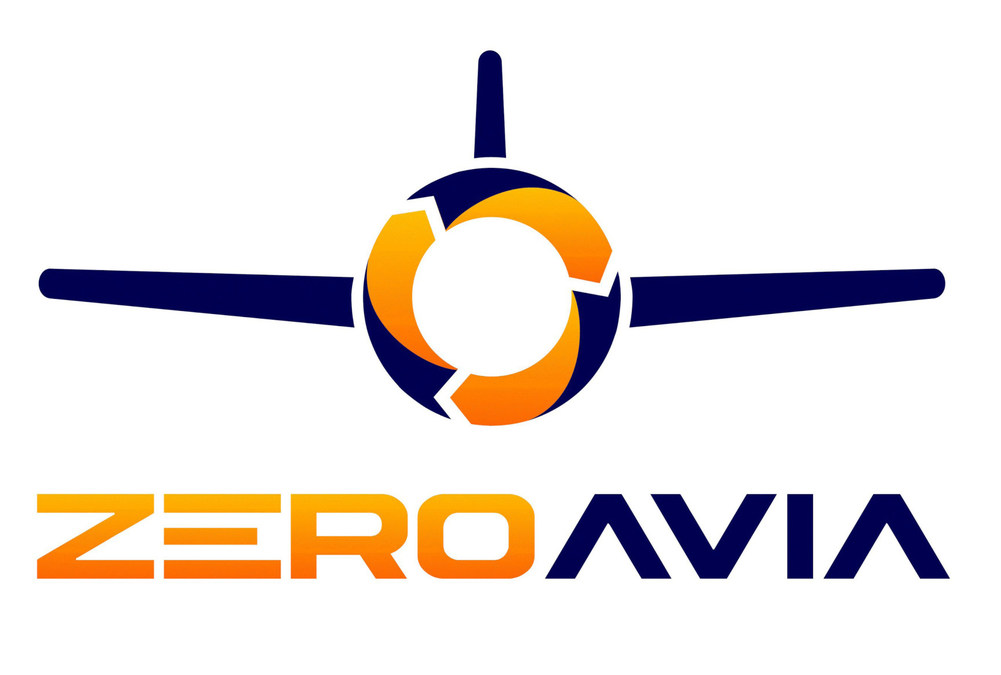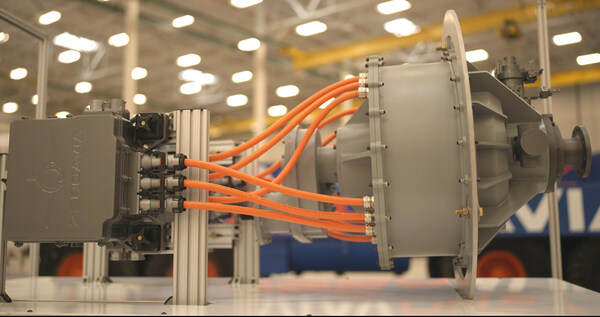
ZeroAvia Launches Electric and Hydrogen Aviation Components Offering as Manufacturing Plans Revealed
Published by Todd Bush on April 24, 2024
Clean aviation innovator seeks to expand addressable market for full engine systems and capitalize on strong OEM interest in its leading fuel cell, power electronics, compressor and electric motor technology
New Propulsion Center of Excellence manufacturing facility at Paine Field, Everett, WA opens to support power electronics and electric motor manufacture
Company also plans site for a Hydrogen Center of Excellence to support fuel cell system production
EVERETT, Wash., April 24, 2024 /PRNewswire/ -- ZeroAvia today announced that it will be offering some of its key components designed for its hydrogen-electric engines to other clean aviation innovators. The move allows ZeroAvia to build upon the multi-billion dollar per annum market for its hydrogen-electric powertrain family, maximizing the company's investment in R&D and its strategy of vertical integration, as well as furthering the company's impact on reducing environmental harm from aviation.

ZeroAvia's electric propulsion system: the ZeroAvia inverter and 600kW electric motor
>> In Other News: RepAir and Cella Launch Carbon Capture and Storage Partnership in Kenya
With the certification work for the ZA600 engine for up to 20 seat aircraft underway, and the underpinning technology for the ZA2000 engine for up to 90 seat aircraft in advanced development, ZeroAvia has conducted component market research and sees significant opportunity in the following areas:
Advanced electric motors for aviation, including a 660 kW max-power direct-drive motor capable of speeds up to 2,200 rpm, and the HyperCore 900kW modular motor capable of speeds up to 20,000 rpm.
Silicon carbide inverters – The 200kW continuous power bidirectional inverter design offers a power density above 20 kW/kg and is available in single (225kW peak / 200kW continuous) and dual (450kW peak / 400kW continuous) configurations. The inverters are designed and produced following aerospace standards, allowing a high-power density and reduced weight with advanced thermal management technologies and integration to enable reliable high performance for high altitude and engine compartment location.
Low temperature Proton Exchange Membrane (LT-PEM) fuel cell configurations (in partnership with PowerCell) – ZeroAvia's SuperStack Flex architecture is a customizable 100-400kW fuel cell power generation platform designed to meet a range of different aerospace power, performance, and packaging requirements, while maintaining exceptional pressure, mass flow rate, humidity, and temperature control.
High temperature PEM (HT-PEM) fuel cell stacks and full power generation systems - ZeroAvia's High-Temperature Proton Exchange Membrane (HTPEM) fuel cell stack is a turbo-air cooled modular system which offers up to 3.5 kW/kg specific power, supporting a variety of traditional aviation and VTOL applications.
Aviation fuel cell compressor is a leading-edge compressor capable of supporting up to 900kW fuel cell applications up to 15,000 feet. The compressor is designed specifically for fuel cell applications and designed for aerospace standards from the start.
The company is in active discussions on potential deals with a number of companies working on electric and hydrogen aviation innovations. More detail on the individual component lines offered by ZeroAvia can be found here.
To facilitate the production of the electric propulsion systems (specifically, power electronics and electric motors) for both its own powertrains and its component offering, ZeroAvia will today open its propulsion center of excellence at Paine Field in Everett, north of Seattle. At a ribbon-cutting ceremony attended by Washington State Governor Jay Inslee, U.S. Representative Rick Larsen, and U.S. Representative Suzan DelBene, guests will get a glimpse of how the new facility will support manufacture of ZeroAvia's world-leading electric propulsion systems for aviation in the new 136k sf facility, as well as housing ZeroAvia's existing R&D operations at Paine Field.
ZeroAvia also plans a separate facility focused on producing hydrogen fuel cell systems – a Hydrogen Center of Excellence - and is currently exploring site selection.
Val Miftakhov, Founder and CEO, ZeroAvia, said: "Today we set forth plans that detail how we are going to bring our engines to market for commercial aircraft as well as the additional market potential in components generated by our pursuit of aerospace applicable fuel cell and electric propulsion technologies.
"We intend to secure as much market share for commercial aviation propulsion systems as possible as this will enhance shareholder value and ensure we deliver in tackling climate impact in the sector. While the market for our powertrains is thousands of engines across commercial aircraft, there will be other applications that are not strategically aligned with our full engine offering, but where our technologies can play a major role in the supply chain for other OEMs.
"And with the opening of the new facility today, we are also able show ZeroAvia's growth from ambitious startup into a clean aerospace manufacturing powerhouse, with a production site officially opened in Everett. The future is bright for clean flight, Washington State!"
Speaking at the official opening of ZeroAvia's Propulsion Center of Excellence in Everett, WA:
Washington State Governor Jay Inslee said: "This opening is another milestone in Washington's long history at the cutting edge of aviation and aerospace innovation. The transition to clean fuels is not only necessary to turn the tide against climate change and its devastating health impacts, it also secures Washington's continued economic dynamism well into the future."
United States Representative Suzan DelBene (D-WA-01) said: "The hydrogen fuel-cell engines that ZeroAvia will begin producing in Everett are a huge step in decarbonizing the aviation sector. Washington is leading the nation in clean energy, making it the ideal hub for this technological advancement. I'm excited by ZeroAvia's new milestone, and I look forward to continuing working with them as they leverage hydrogen's ability to revolutionize the aviation industry."
About ZeroAvia
ZeroAvia is working to deliver the clean future of flight for the entirety of aviation by enabling electric propulsion. With a primary focus on developing hydrogen-electric (fuel cell-powered) engines, ZeroAvia has submitted its first powertrain for up to 20 seat planes for certification with a target of the end of 2025 and is working on a larger powertrain for 30–90 seat aircraft by 2027. Founded in California and now with thriving teams also in Everett, WA and the United Kingdom, ZeroAvia has secured experimental certificates to test its engines in three separate testbed aircraft with the FAA and CAA and passed significant flight test milestones. The company has signed a number of key engineering partnerships with major aircraft OEMs and has nearly 2,000 pre-orders for engines from a number of the major global airlines, with future revenue potential over $10bn. For more, please visit ZeroAvia.com, follow @ZeroAvia on Facebook, Twitter/X, Instagram, LinkedIn, and YouTube.
SOURCE ZeroAvia
Subscribe to the newsletter
Daily decarbonization data and news delivered to your inbox
Follow the money flow of climate, technology, and energy investments to uncover new opportunities and jobs.
Latest issues
-
This $4.1M Deal Could Change Carbon Capture's Playbook
Inside This Issue 🗜️ CarbonQuest Lands $4.1M Alberta Deal on Gas Compressors 🛡️ CADO, 123Carbon, and Assure SAF Registry Join Forces to Tackle SAF Integrity Gaps ✈️ ISCC, OMV, and Airbus Partner t...
-
Can Koloma Crack Iowa's Billion-Year-Old Secret?
Inside This Issue ⛏️ Iowa's Hydrogen Rush: Can Koloma Strike Gold Before Rules Kick In? ✈️ Bentley Commits to Use 100% Sustainable Aviation Fuel for Car Airfreight 🌬️ Minister Parrott Provides Upd...
-
$47M Just Poured Into This SAF Producer
Inside This Issue 💰 LanzaJet Announces $47M in New Capital and First Close of Equity Round at $650M Pre-Money Valuation 🚢 Maersk's Ethanol Bet Could Reshape U.S. Fuel Markets 🪨 Canada Nickel and t...
Company Announcements
-
Feedstocks are Perennial Grasses and other Renewable Biomass Sources FREDERICK, Md., Feb. 18, 2026 /PRNewswire/ -- Do you know why passenger and freight planes are not using renewable biofuel? It'...
-
Vancouver, British Columbia--(Newsfile Corp. - February 25, 2026) - Q Precious & Battery Metals Corp. (CSE: QMET) (OTC Pink: BTKRF) (FSE: 0NB) ("QMET" or the "Company") congratulates Quebec Inn...
-
Carbon Direct and C2X Announce Collaboration on Pioneering Forestry Residue-to-Biofuel Project
Collaboration on C2X’s Beaver Lake Biofuels project advances biomass carbon removal and storage as a scalable climate solution, transforming Louisiana’s forestry and sawmill residues into biofuel a...
-
Carbon Direct and C2X Announce Collaboration on Pioneering Forestry Residue-to-Biofuel Project
Collaboration on C2X’s Beaver Lake Biofuels project advances biomass carbon removal and storage as a scalable climate solution, transforming Louisiana’s forestry and sawmill residues into biofuel a...